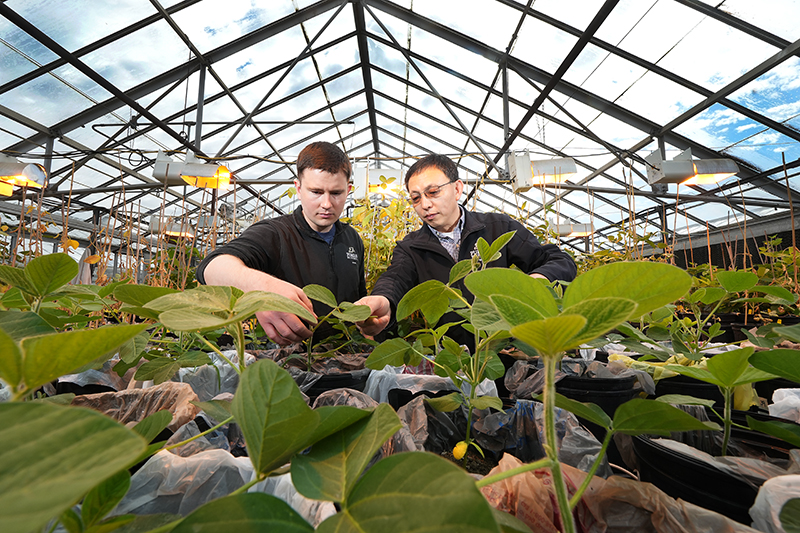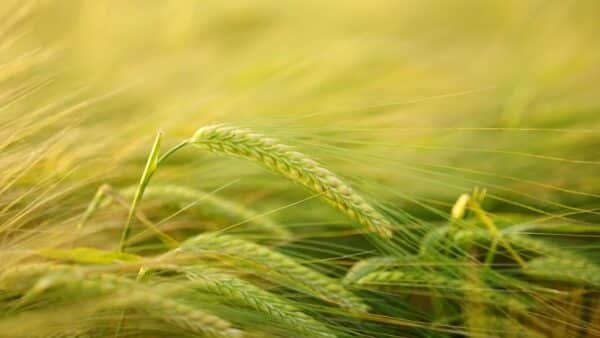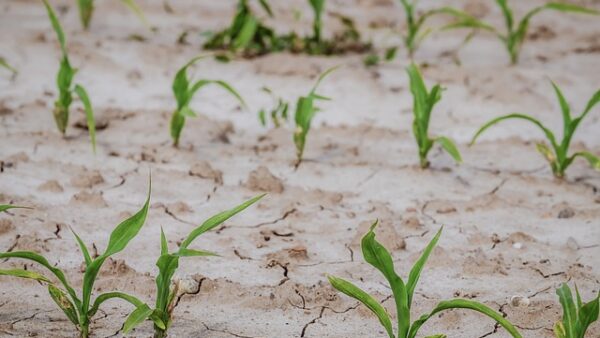Scientists from the University of Portsmouth and Royal Botanic Gardens, Kew, have come up with a formula to help plant breeders and farmers around the world grow crops in a more sustainable way.
The new checklist, which has just been published in the Botanical Journal of the Linnean Society, will guide plant breeders to better understand the species they are trying to improve. It will also help them find ways to increase growth and yield of crops using wild plant species from which they were once domesticated.
There is an urgent and critical need for changes in farming techniques due to the growing challenges of global warming faced by crop producers. Plants that were selected and bred to suit certain climates, now need more help from the humans who are damaging the environment in which they grow.
Study author Dr Rocio Perez-Barrales, Senior Lecturer in the School of Biological Science at the University of Portsmouth said: “When the human race first domesticated crops, the climate and environment were completely different – what we are seeing in the last 50 years is a rapid change in climate. The world is now frequently facing catastrophic climate events like droughts and in the UK we are now seeing some crops being harvested up to a month earlier than they used to be.
“When plants were domesticated, they were artificially selected for a specific desirable trait. Artificial selection and farming have led to quality improvements in foods such as meat, milk, and fruit. However, over hundreds of years, there has been a negative impact to this process – a reduction in plant genetic diversity.
“Scientists believe genetic diversity is important for plants to cope with a change in environment. This leads to a choice of using an artificial process such as the use of pesticides, to protect crops against pests. An alternative for plant breeders is to use wild crop relatives and use the natural genetic variation in those species that protects them against the natural enemies.
“Climate change is altering the way crops behave. Crops have lost so much genetic diversity they are less able to adapt and respond to climate change. Scientists are now looking at wild crop relatives to see what traits can be improved to make crops better adapted to the current environmental challenges.”
The researchers re-visited guidelines set out 50 years ago that have since become outdated. They used this classification as a basis to deliver a new method of improving crops, without destroying the very few natural environments left in the world to grow food.
Dr Perez-Barrales explained: “Some crops have just a few closely related species, whilst others might have a hundred or so. For example, linseed has more than 150 related species, and the challenge is how do we select the relevant traits and from what wild relatives? In answering this question, we realised that we needed to learn more from the biology of the species, which can only be done by using modern classification developed using the latest science. The classification developed in the early 1970’s needed to be updated, and in effect rebooted, to integrate this modern information.”
This new toolset for crop breeders relies on identifying which wild crop relative needs to be explored in order to improve the crops. Dr Perez-Barrales said: “There may be a demand to grow linseed, for example, in countries at different latitudes. Linseed (Linum usitatissimum) was domesticated in the Middle East 10,000 years ago, and we can grow it in England because it naturally captured genes from pale blue flax, Linum bienne, allowing the crop to grow in northern and colder environments. My research looks at the natural variation in flowering of wild Linum species to see if we can use it to improve linseed. That way the right genes can be selected and introduced into the crop, something that plant breeders do regularly. These new guidelines will help plant breeders become more sustainable and efficient. We believe it is the future of farming.”
This paper recommends guidelines for plant breeders to select the one right species to improve the crops. The guidelines include:
Dr Juan Viruel from Kew Garden said: “In this study we advise plant breeders to use phylogenetic distance metrics, cytogenetic compatibility data (for example, chromosome number and ploidy) and information about the breeding system to shortlist wild species for plant breeding programmes”. With this information we can better select the wild species to improve our crops. It is an invaluable checklist for plant breeders and will help production of crops in a more sustainable way.”
Source: University of Portsmouth











